Bios
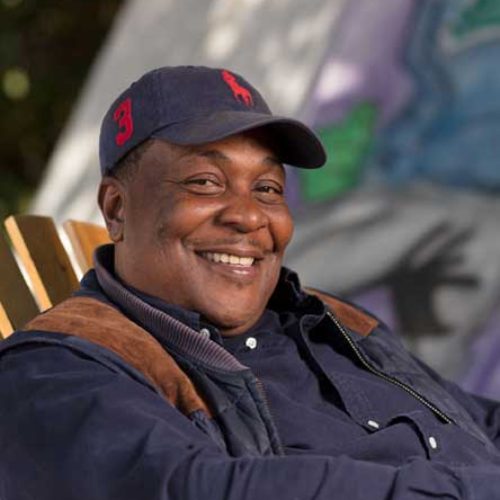
Damien Forshe
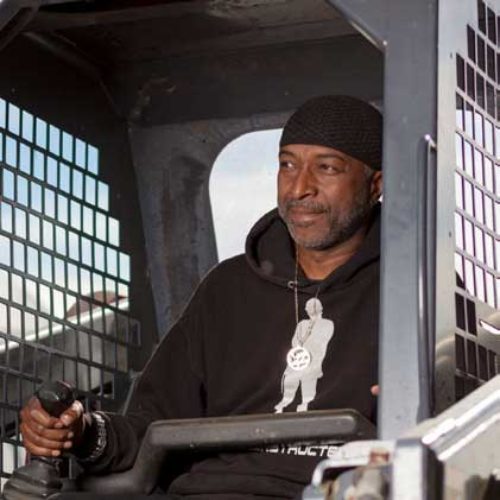
G. Keymah Durden III
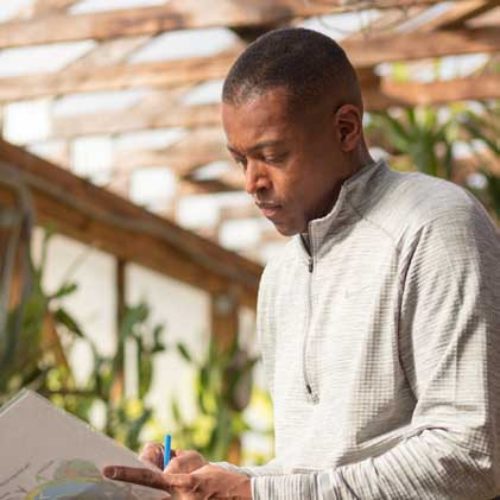
Randy McShepard
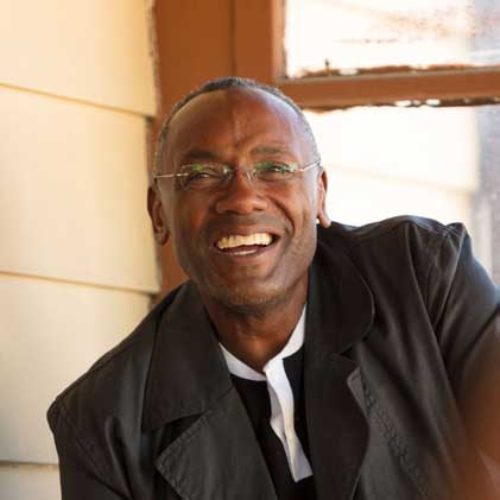
Marc S. White
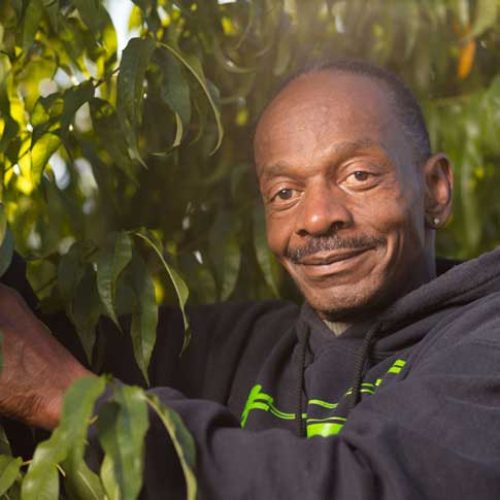
The Forgotten Triangle
In the 1950’s The Kinsman neighborhood in Cleveland was a bustling, prosperous area that residents were proud to live in. But over the decades economic decline and depopulation has turned this once thriving place into a low-income, high crime area where residents struggle amid skyrocketing rates of diabetes, heart disease, high infant mortality and a bevy of other chronic ailments. The future has not looked bright for this and many other urban “Rust-Belt” communities for many years, but three men are on a mission to change that narrative and bring health and prosperity back to the people and community they love.
From Dirt to Dreams
In 2011 childhood friends Damien, Keymah and Randy requested a 1.3 acre plot of unwanted, disused land in their old neighborhood from the City of Cleveland. Strewn with household waste, car parts and other debris, this was no field of dreams but they could see past the rubble and refuse to the endless possibilities that lay before them. Each of them was uniquely suited to contribute their many talents to what would eventually become one of the most fertile urban farms the agricultural industry has ever seen in America.
Lives and Landscapes
Shot in a verite style and edited at a lively, exciting pace the film will follow these captivating personalities as they venture into new communities around the country, changing lives and landscapes forever. The film will feature interviews with some of the most important voices in the movement to transform communities and create sustainable, profitable urban agriculture including Ambassador Andrew Young, and urban agriculture pioneer Will Allen. The filmmakers also intend to secure interviews with other influencers promoting healthier food choices like Russell Simmons, Corey Booker, Lebron James, Jason Brown, Jamie Oliver and many others.
Currently in production, Soil Brothers asks the big questions about food in America: Where does it come from? What is it made of? How do we consume it? And, most importantly, how do we transform it? Follow Damien, Keymah and Randy as they “green the ghetto”, revolutionize urban agriculture and bring hope and inspiration to a new generation of American farming.





Inspired by the guiding principles of the Rid-All Farm philosophy, we are crafting an outreach and engagement campaign that encapsulates the farm’s core themes of Empowerment, Community and Love. Through a comprehensive training, education and outreach program it is our intention to promote the expansion of existing urban and school farming projects reaching elementary, middle and high schools while also helping implement and coordinate the creation of new urban farming projects in vulnerable communities across the US. The folks at Rid-All Green Partnership have been developing a comprehensive training program and curriculum for several years and we see this campaign as the perfect platform from which to advance those efforts.
We know that the future depends on an educated community and that education must begin at the elementary level. We are committed to presenting an educational product fostering not only academic excellence but a sense of stewardship, responsibility and pride in each of the students that interacts with the program. It is our hope that the programs we provide will inspire the students to transform their communities from within and foster a deep sense of ownership over the futures that their particular communities face.
In addition, we will orchestrate the mechanism and means for elementary, middle and high schools in vulnerable urban communities to transform the land in their midst into workable, sustainable urban agriculture projects. We believe that practice and doing are as critical to learning as coursework and allowing students across the country to get their “hands dirty” and immerse themselves in living projects will further embolden and inspire them.
A robust social engagement campaign will be strategically focused on cities throughout the US that have communities primed to benefit from bringing Rid-All Green Partnership into their community and transforming the landscape. In each city we will screen the film, work with local non-profit partner organizations to activate audiences, host live interactions with experts and/or grassroots leaders, and facilitate on-site workshops and training sessions.
We’ll form partnerships with local community organizers and as with our school initiative provide the framework for communities to bring the expertise of Rid-All Green Partnership into their communities providing hands-on expertise in initiating and developing urban agriculture projects in at least one neighborhood in all 25 cities.
It’s probably true that love really is all there is. It is the reason that the farm was created, it is the bond that holds Damien, Keymah and Randy together and it is the reason that the farm has been so successful. For those of us living in vulnerable communities it can be the most elusive resource of all. Like a plant, love must be nurtured, tended to and cared for properly in order for it to grow and indeed anything worth doing in this world needs a big dose of it to succeed. Damien, Keymah and Randy could have created a farm anywhere, but they brought it home to the people they love. Most people who visit the Rid-All Farm in Cleveland immediately remark upon the spirit of the place. Everyone who spends time amongst the family of this farm feels uplifted, and part of something tremendously meaningful.
It is the belief of the filmmakers and the founders of Rid-All Green Partner- ship that love can make any child thrive and any community succeed. It is precisely this philosophy of mindful care that has inspired the making of this film and our desire to share the story of Damien, Keymah and Randy with the rest of the world.
Working in collaboration with a broad network of like-minded organizations we’ll share the message of hope that Rid-All Green Partnership represents with households across America, inspiring a new generation of farmers and campaigners for social change. And one neighborhood at a time, maybe we can turn the rust-belt green.
“Food deserts can be described as geographic areas where residents’ access to affordable, healthy food options (especially fresh fruits and vegetables) is restricted or nonexistent due to the absence of grocery stores within convenient traveling distance. For instance, according to a report prepared for Congress by the Economic Research Service of the US Department of Agriculture, about 2.3 million people (or 2.2 percent of all US households) live more than one mile away from a supermarket and do not own a car. In urban areas, access to public transportation may help residents overcome the difficulties posed by distance, but economic forces have driven grocery stores out of many cities in recent years, making them so few and far between that an individual’s food shopping trip may require taking several buses or trains. In suburban and rural areas, public transportation is either very limited or unavailable, with supermarkets often many miles away from people’s homes.
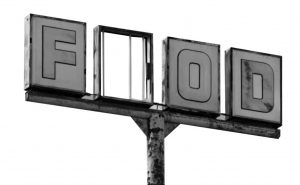
The other defining characteristic of food deserts is socio-economic: that is, they are most commonly found in communities of color and low-income areas (where many people don’t have cars). Studies have found that wealthy districts have three times as many supermarkets as poor ones do, that white neighborhoods contain an average of four times as many supermarkets as predominantly black ones do, and that grocery stores in African-American communities are usually smaller with less selection. People’s choices about what to eat are severely limited by the options available to them and what they can afford—and many food deserts contain an overabundance of fast food chains selling cheap “meat” and dairy-based foods that are high in fat, sugar and salt. Processed foods (such as snack cakes, chips and soda) typically sold by corner delis, convenience stores and liquor stores are usually just as unhealthy.”
-Food Empowerment Project
Growing up in rural Northeast Ohio, our experiences with food were rooted in lazy summer afternoons and dirty hands. Some of my earliest memories were sitting in the strawberry patch eating berries as a reward for the dreaded weed pulling. It is a fact that tomatoes are best eat- en when you can still feel the suns warmth on their skin. The mid-summer drop and run of excess zucchini and beans were a necessity and neighbors were always finding the anonymous gifts left on their porches and front steps. Vegetables were a staple and required little more than a short walk to the gardens. I had no idea there were people who had never experienced this.
There are moments in life that have a profound impact. The moment we met Keymah, Randell, Damien, Marc and Dave, was one of those. There was an instant connection, with them and their farm. The experience challenged our conventional image of the inner city, the people who live there and what is necessary to exact change. While this is a documentary about an urban farm, food education, and cultural outreach, to us it is about the energy, the way it feels and the way we feel when we are there. The moment you step foot onto the farm you’ll feel it too. This is a triumphal story that reminds us all that giant changes occur when ordinary individuals take small, unyielding steps.
What started as a desire to tell their story, quickly became a responsibility to live up to their dream. The film chronicles their personal and professional journey, Rid-All Green Partnerships’ growth and expansion, domestically and internationally, and delves into the larger social implications living in an inner city and subsequent food desert have on the culture as a whole. Studies have shown life expectancy and infant mortality rates within the inner cities of Cleveland to be far greater than closely neighboring communities. These health disparities were found to be driven not by violence or natural differences, but by racial and economic ones. They are fueled by heart disease and other chronic illnesses that result from poverty and a lack of access to healthy foods and safe places to play. Rid-All Green Partnership’s long-term strategy is to use urban agriculture to educate the next generation of Clevelanders to not only learn to grow and eat fresh foods, but to also operate and grow their own businesses in the food industry, ranging from selling fresh produce and fish to food distributors to full-fledged processing and packaging of fresh food products. Driven by an overwhelming need to educate and give back, they are not only building a successful urban farming business, they are healing, inspiring, renewing, and transforming the land, the community and the minds of the next generation.
Working together as a co-director production team we have found that one of the greatest strengths of our partnership is being able to see and experience what we create from two opposing vantage points. Our passion for filmmaking is enhanced by our individual lens’ and we push each other past our comfort levels, always with a mindful eye towards creating a better, fuller, more well-rounded result. While our partnership is unique, it is also seamless and immensely valuable and we would have it no other way.
People have asked, “Why? Why do you want to want to make another documentary about food?”
Because this isn’t just about food. This is about what is real, about spirit, and love, and hope in each other, in a better way and a better tomorrow. This is about inclusion, connection, common ground and finding each other, and ourselves.
This is about soul.
This is about soil brothers.
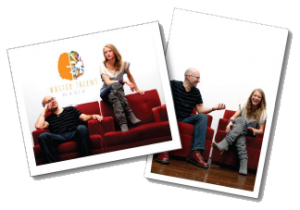 Wasted Talent Media is a multi-award-winning film, broadcast and digital media production company founded in 2009 by Erin Ludlam and Todd Volkmer. Winners of several ADDY and AVA awards, WTM creates inspiring content across a broad creative spectrum from documentary film to television and advertising. WTM is also the creator and producer of Arts Quest hosted by Erin and Todd and distributed throughout the Midwest.
Wasted Talent Media is a multi-award-winning film, broadcast and digital media production company founded in 2009 by Erin Ludlam and Todd Volkmer. Winners of several ADDY and AVA awards, WTM creates inspiring content across a broad creative spectrum from documentary film to television and advertising. WTM is also the creator and producer of Arts Quest hosted by Erin and Todd and distributed throughout the Midwest.
Erin Ludlam (Director)
Growing up under the oppressive regime otherwise known as her 3 older sisters, Erin learned early on the tricks of the trade in working with dominant personalities and spent countless hours fine tuning her ability to finesse a favorable outcome for herself through subtle techniques, humor, and stellar hide and seek skills. These skills have served her well into adulthood and her professional life. As a student at Kent State University, Erin majored in theatre with a minor in pre-law. While the theatre deepened her love of acting, her real draw was always to the subtleties of film. With the purpose of pursuing her dreams, she moved to southern California, but as is often the case, life had other plans and she landed in the design world instead, co-owning the web and print design company, Pixel Playhouse. Her first venture in entrepreneurship called her to wear many hats including designer, voice-over talent, and business manager. As the baby of the family, the guilt of leaving finally crept its way under the resolve and Erin moved back to Ohio in 2006. In 2007, she opened the fine art gallery, We Gallery, in Akron with her sister, Karyn. Again, opportunity fell into her lap as Erin met artist, Todd Volkmer and the two embarked on a side venture, creating a new television show Arts Quest, on which she is a co-host and the show’s co-director where they introduced local artists to the patrons of their region. Initial distribution was throughout Northeast Ohio on Time Warners NEON network, which eventually expanded into New York and West Virginia.
Todd Volkmer (Director)
Todd has spent his adult life mapping detours around institutional barriers, although his artistic career began like a fairy tale. Three decades ago, he won an award, at age 6, at the first art contest he ever entered. During high school he aced every art class offered at Hudson High, and as a senior won a Gold Key for his piece “The Outcast”, an award given by the National Scholastic Art Awards. But soon afterward he encountered one of those institutional barriers that suffocates the spirits of many young art makers. He started up his own working gallery and studio space that housed himself, and many more local artists. His new venture City Art Project had two locations. And, as a collaborator on commercial graphic design projects with the nationally renowned artist Hector Vega, todd’s posters and wine labels are landing on local billboards and store shelves. In May 2009, todd found a new partner in Erin Ludlam. The pair created a new television show Arts Quest, on which he is a co-host and the show’s co-director, they introduced local artists to the patrons of their region. Initial distribution will be throughout Northeast Ohio on Time Warners NEON network, which eventually expanded into New York and West Virginia.
Deborah Wallace (Producer)
Deborah is an Emmy-nominated Producer and Director working in both film and theatre. As Co-Artistic Director of the multi award-winning International WOW Company she collaborated on the production of more than 20 works for the stage and screen including the Academy Award nominated, Emmy winning documentary film, Gasland. Deborah produced its sequel Gasland, Part II for HBO, which premiered at the Tribeca Film Festival in 2013 and went on to win the Environmental Media Association Award for Best Documentary, Cinema Eye Honors Hell Yeah! Award and Wild & Scenic Film festival’s Best of Festival. In addition, Wallace produced the short films The Sky is Pink, Divest, Gaswork, and Occupy Sandy. She recently completed Blood on the Mountain, a feature detailing the struggle for labor rights in the coalmines of West Virginia, which was honored by the International Documentary Association, and was released by Netflix in May, 2017. Wallace’s original work for the theater has been presented at HERE Arts, The Ohio Theater, Ars Nova, New Dance Group, Virginia Stage Company, and the Incubator Arts Project. In addition to Soil Brothers, Deborah is directing the documentary feature American Psyche, and is Executive producing Brave Girls, a film chronicling the struggle of young muslim women seeking an education in India.